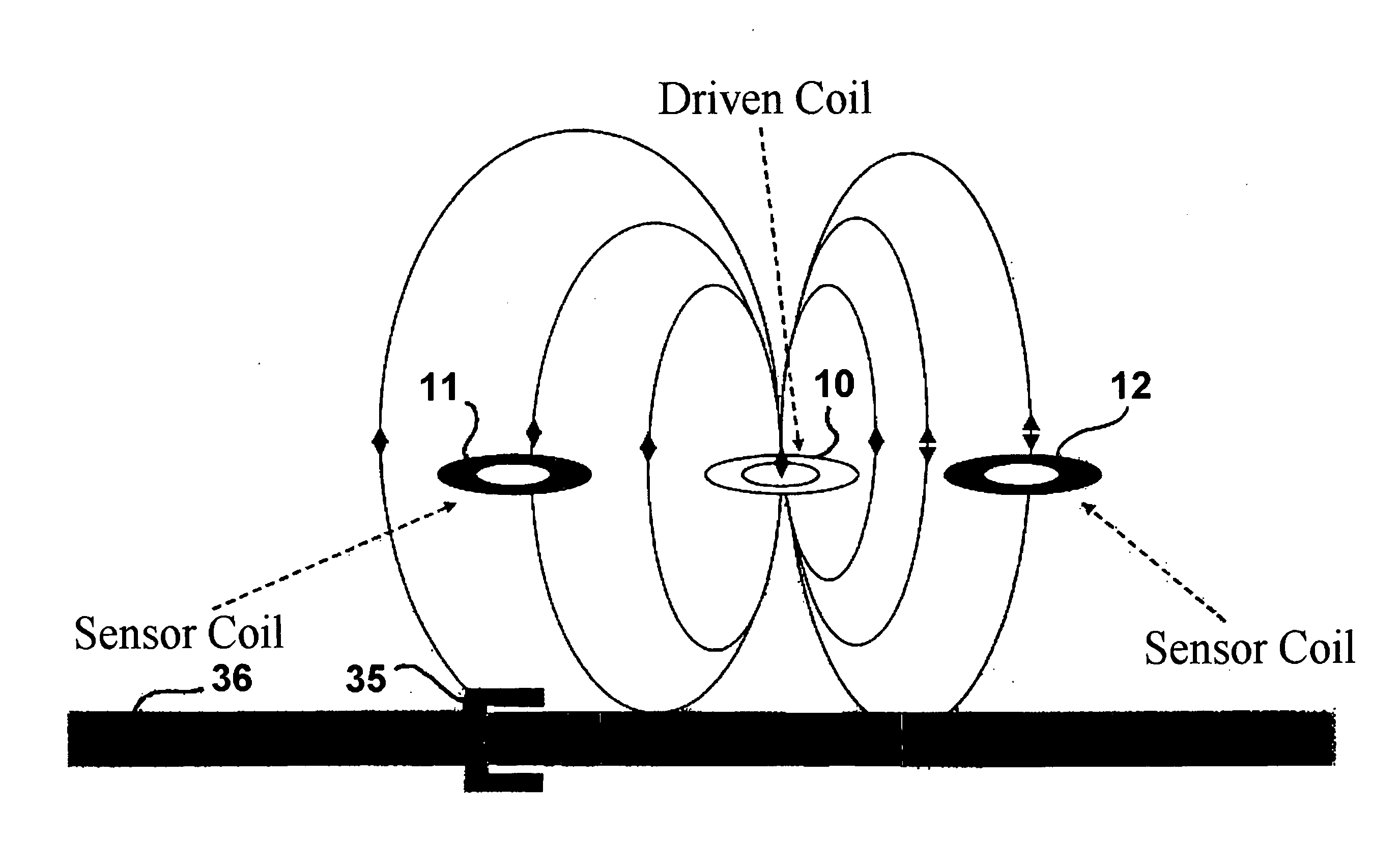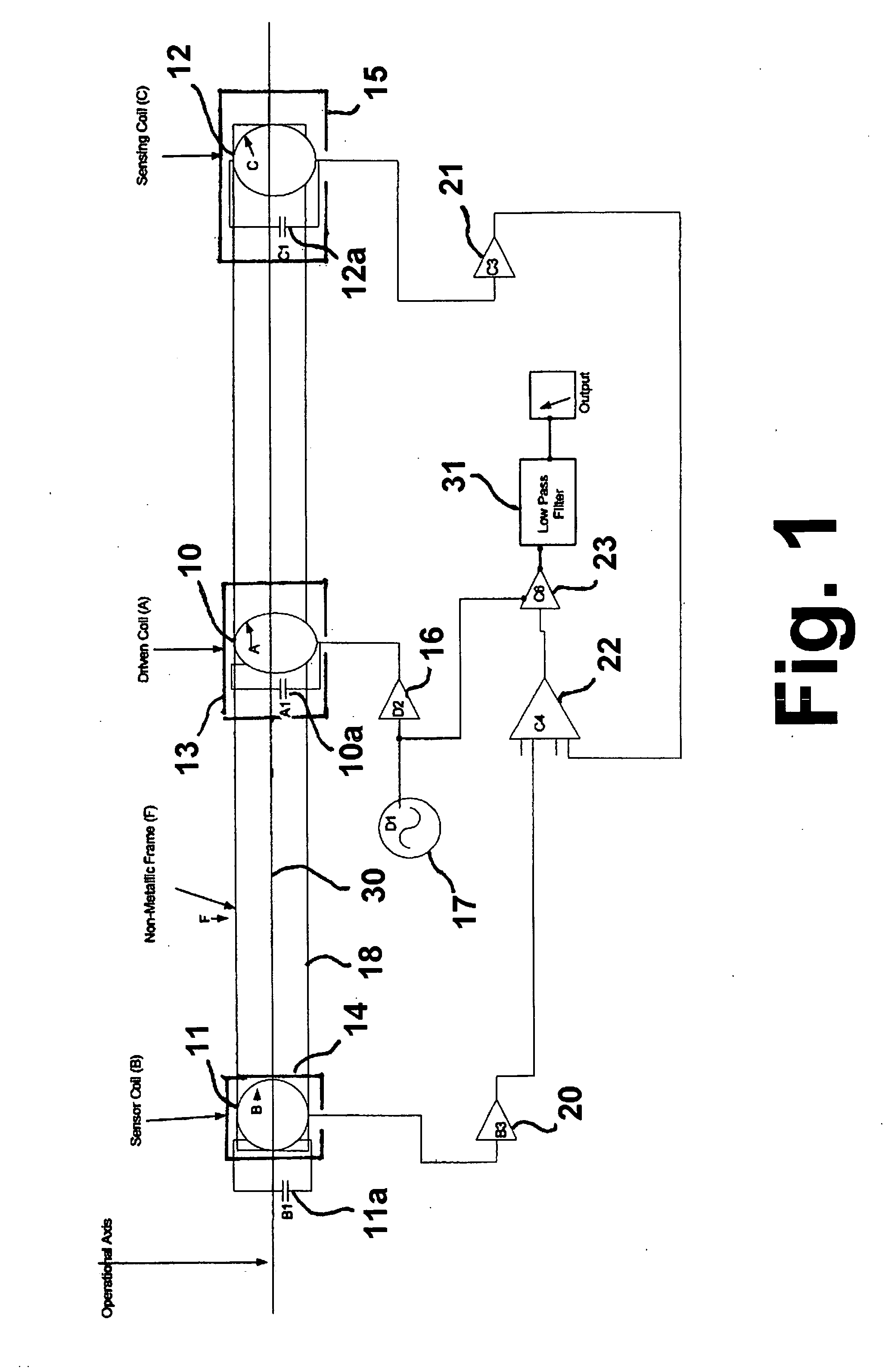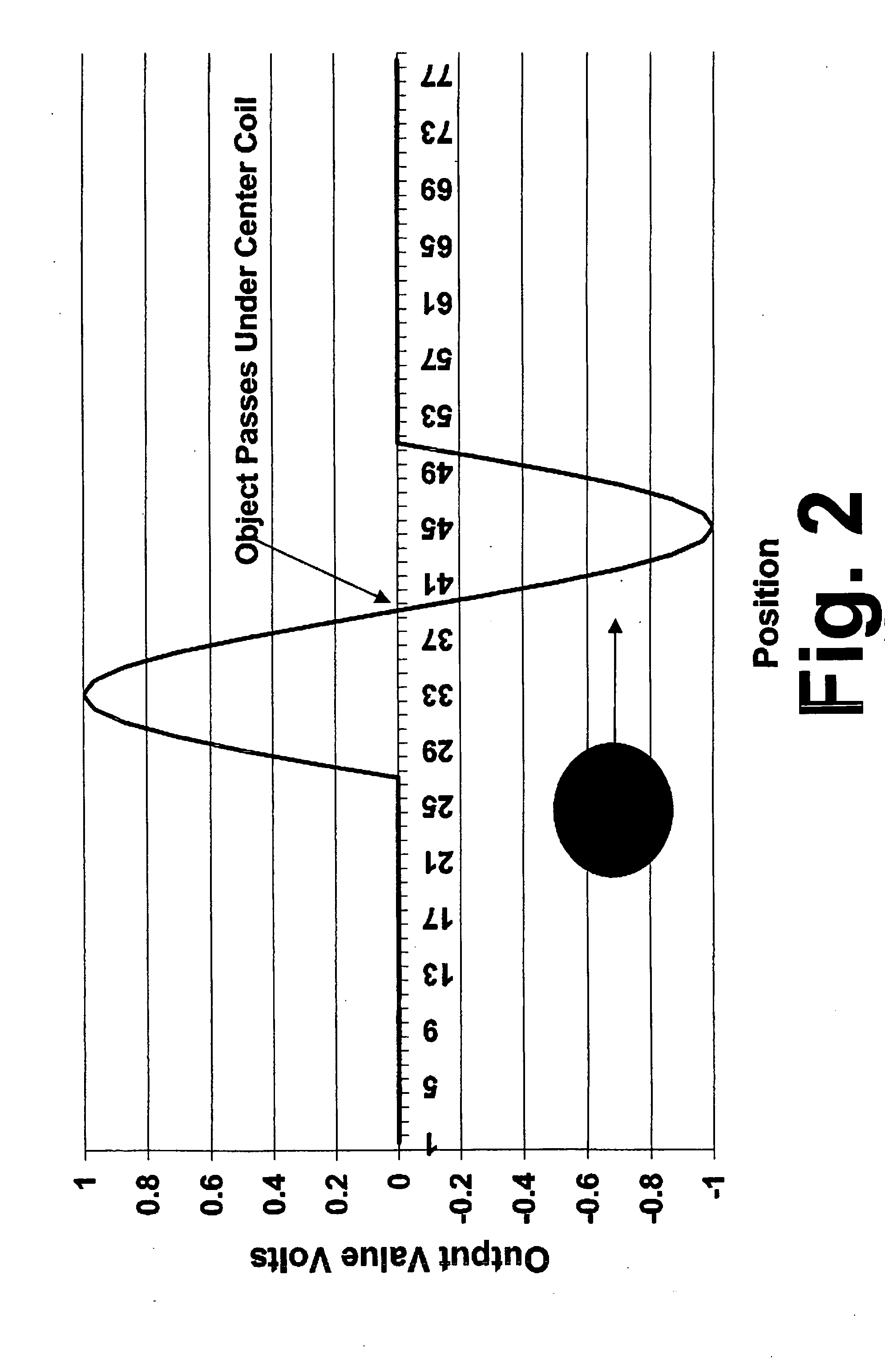Method and apparatus for locating underground cast iron pipe joints
a technology of underground cast iron pipe joints and methods, applied in the direction of material magnetic variables, using reradiation, instruments, etc., can solve the problems of inability to use and apply these types of devices, and inability to accurately loca
- Summary
- Abstract
- Description
- Claims
- Application Information
AI Technical Summary
Benefits of technology
Problems solved by technology
Method used
Image
Examples
example
[0034]A laboratory version of the apparatus of this invention was constructed using 83 kHz coils 8 inches in diameter. Aluminum foil was used as the electrostatic shielding on the coils. A 1 MHz crystal oscillator and a divide by 6 counter were used to drive two D-edge flip-flops. The output of the flip-flop circuits produced 83 kHz square waves with 0, 90, 180, and 270-degree phase shifts. The zero degree signal was used to trigger a logic FET used to drive the electrically driven resonant coil. The 0, 90, 180 and 270 degree phase signals were tried as inputs to the detector circuits. The signal from each of the resonant sensor coils 11, 12 were sent through high impedance voltage following amplifiers. The outputs of the amplifiers were connected to the inputs of a differential input instrumentation amplifier. The output of the instrumentation amplifier was further amplified and sent to demodulator / phase detector circuits. Two circuits, a balanced demodulator and a phase detector, ...
PUM
| Property | Measurement | Unit |
|---|---|---|
| diameter | aaaaa | aaaaa |
| magnetic field | aaaaa | aaaaa |
| phase | aaaaa | aaaaa |
Abstract
Description
Claims
Application Information
 Login to View More
Login to View More - R&D
- Intellectual Property
- Life Sciences
- Materials
- Tech Scout
- Unparalleled Data Quality
- Higher Quality Content
- 60% Fewer Hallucinations
Browse by: Latest US Patents, China's latest patents, Technical Efficacy Thesaurus, Application Domain, Technology Topic, Popular Technical Reports.
© 2025 PatSnap. All rights reserved.Legal|Privacy policy|Modern Slavery Act Transparency Statement|Sitemap|About US| Contact US: help@patsnap.com



